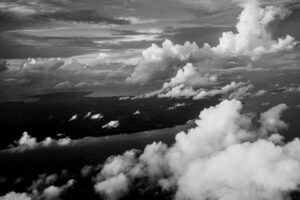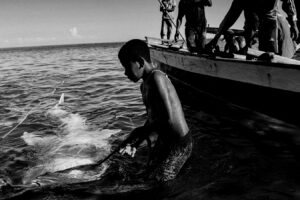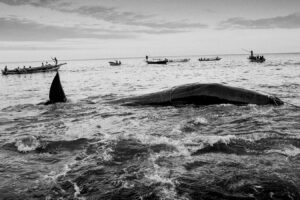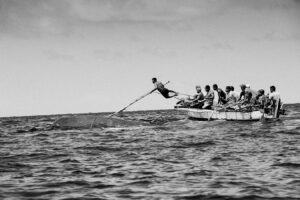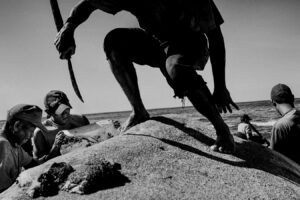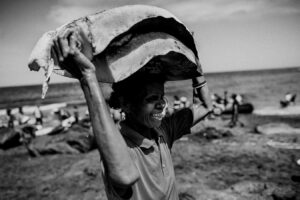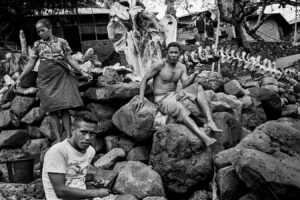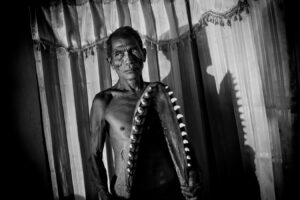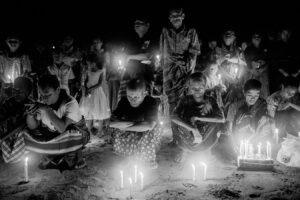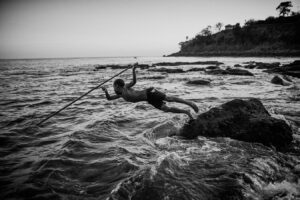Indonesia is the fourth most populous country in the world and 60 percent of its territory consists of the sea. Unquestionably, the sea has been a major element for most of its people living in the archipelago and fishing is an integral part way of living for the coastal people.
Most of the fishing tradition dates back way before Indonesia even existed. Like in Lamalera, a village in a small island of Lembata in the eastern part of Indonesia, Where whaling has been a tradition for more than 600 years. The village of 2,000 people hunts sperm whales with wooden sailboats and hand-thrown bamboo harpoons. It is the most traditional means of fishing in this modern world.
They have a strict rule to hunt only sperm whales that were spotted from their village. Though they also hunt killer whales, manta rays, dolphins, they do not hunt the endangered blue whales when spotted. They believe it was blue whales that saved and brought their ancestors to Lamalera. The Lamalera people originated from Sulawesi and migrated to the island of Lepan Batan where whaling began. A Tsunami forced them to relocate to what is now called Lamalera.
A local traditional agreement also made with neighboring villages in the mountains not to hunt on land, and the villagers in the mountain not to catch anything from the sea. Both villages meet every weekend in a trade market. Lamalera villagers barter fish and whale meat for crops and other commodities from the mountain dwelling villagers, creating a self-contained economic system. The whale meat was never traded in other islands outside Lembata.
When whales were caught, the meat is distributed among villagers, including widows from the fallen Lamafa (harpooners). The meat is not for sale and only used for the daily need of villagers in Lamalera. The harvest record kept since 1960 shows that until 2010 there were 909 whales caught. For about 50 years those whales sustained the life of 2,000 villagers. Lamalera whalers are exempt from the international ban on whaling under clause that allows similar aboriginal communities to follow traditional practices.
For the people of Lamalera, the sea is their mother who feeds and provides for them.
My Ancestors are people of the sea,
fond to venture to the vast ocean
Passing through tides without of fear,
coming through storms everyday
Wind Blows, Sail unfurled, tide crashes onshore
Brave young men, rise now, to the sea together we go…
(From Indonesian folklore song, Nenek Moyangku Seorang Pelaut)
